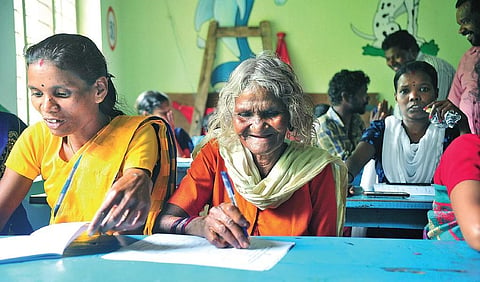

THIRUVANANTHAPURAM: After the government and aided schools, it’s now the turn of centres imparting informal education in the state to turn hi-tech. Over the past two months, literacy and continuing education programmes had taken a backseat owing to the lockdown. Now, the informal education sector is all set for a grand comeback with the adoption of e-learning methods.
The Kerala State Literacy Mission Authority will soon convert to online mode its literacy as well as continuing education programmes. The Mission has tailor-made courses for tribal, Scheduled Caste and transgender people, coastal population and guest workers. “As part of introducing e-learning mode for marginalised sections, we are in the process of setting up smart learning centres with digital facility in tribal settlements,” literacy mission director P S Sreekala told TINE.
Smart learning centres will be set up in tribal settlements on the lines of the smart classrooms, she added. Due to Covid-19, these e-learning centres will strictly adhere to social distancing norms. Educated youngsters from the marginalised sections will be given training to conduct online classes. Separate learning material and curriculum will be devised for such classes.
Plan of action
TNIE has accessed a comprehensive report submitted by the literacy mission to the government regarding informal education activities to be undertaken during the time of Covid-19 As per the report, a comprehensive survey will be conducted to gauge the extent of digital reach among the learners of various programmes. The learners who have access to mobile phone, computer or tab will be included in WhatsApp groups by their instructors concerned for imparting online classes.
The recording of online classes will also be uploaded in video sharing platforms such as YouTube for those learners who cannot access the classes in real time. The e-learning centres, to be set up with the help of local bodies, are intended for those learners who do not have access to online tools. Even after the situation returns to normal, the classes in e-learning centres will be on a shift basis to keep the number of learners at any given time to the minimum.